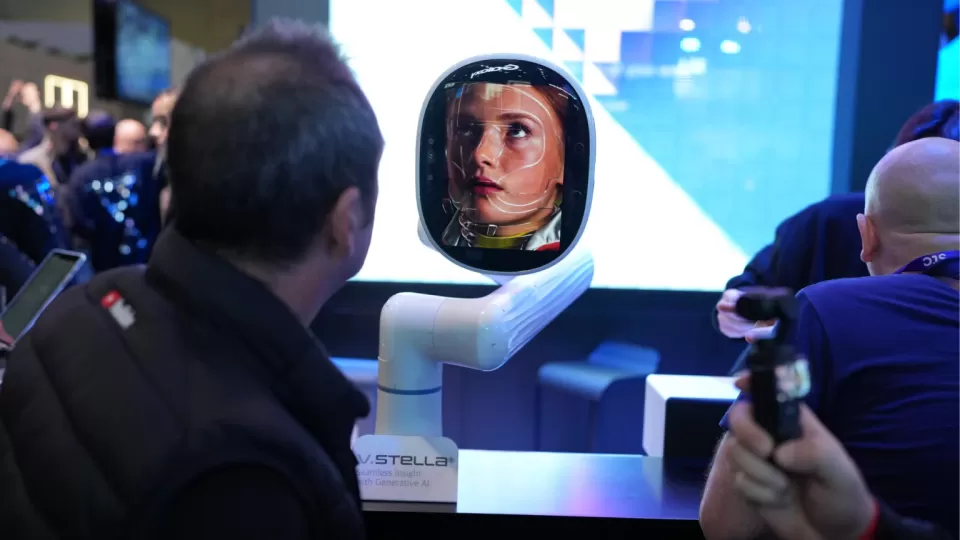March 21, 2024
BANGKOK – AI was on everyone’s lips at Mobile World Congress 2024, the annual mobile communications trade show held in Barcelona. While previous years were focused on 5G, this edition (held February 26-29) was packed with AI-related announcements blurring the lines between telecom and tech.
Having spoken to many government and industry leaders, I returned confident AI represents an opportunity for Thailand to tackle some of its environmental and competitiveness gaps. Here are three focus areas for Thailand’s AI ambitions to shine on the global stage.
Responsible AI
With AI heating up, so are debates about its responsible usage, with growing calls for transparent, bias-free, and explainable systems. In response, Microsoft used the Mobile World Congress to announce new guiding principles for AI governance, as well as a partnership with Mistral, their second major AI partnership since OpenAI. This will make their AI models more widely available to developers.
True Corporation is the first major Thai company to announce an ethical AI charter. We reiterated our commitment to responsible AI usage with the nomination of an AI governance committee that will review all our major AI initiatives. This will ensure we fully respect the data privacy of our customers. And we will continue engaging with public and private stakeholders to make ethical AI the norm in Thailand.
The other burning topic for responsible AI was climate. The GSMA released their Net Zero Report on day three of MWC, stating that carbon emissions of mobile network operators worldwide dropped by 6% between 2019 and 2022, despite internet traffic more than doubling. But could the massive computing power required for AI derail these efforts?
On the bright side, AI can also contribute to positive climate action, which Thailand urgently needs. True Corporation shared how an AI solution we developed in-house for our networks can achieve energy savings of 15%. This is an important step towards our climate goal of carbon neutrality by 2030.
AI-First or AI-Ready?
Amid all the excitement surrounding AI, industry leaders are having to confront some harsh realities. Is their organization digitized? Are decisions in the C-suite data-driven? Are their organizations attracting, retaining and empowering digital talents? Are their data privacy governance mechanisms strong enough? Before adopting AI, these are some of the challenges businesses need to address.
Telenor, a global telecom company based in Norway and a co-owner of True Corporation, organized a session with its three Asian companies, all of which are number one in their markets and driving transformation in their respective countries. Yasir Azman, CEO of Grameenphone (Bangladesh), Idham Nawawi, CEO of Celcom Digi (Malaysia), and I discussed the need for businesses in Asia to ask some of these tough questions before running with AI.
At True, we’ve committed to training up to 2,400 digital citizens within 2024. But more importantly, we’ve set tangible targets for them to achieve, such as 100% automation of repetitive, rule-based tasks within 2027. To help Thai businesses leapfrog into AI, we’ve also built a robust ecosystem of AI-ready solutions and services, from open APIs to analytics platforms and digital business courses at True Digital Academy.
From Base Towers to Data Centers
As the conversations at the Mobile World Congress shifted from 5G to AI, so did the infrastructure focus. Rather than talk up the latest 5G equipment to bolt onto base towers, eyes were on data centres and processing capabilities.
Fittingly, a Thai delegation from the Ministry of Digital Economy and Society (DES) met with Huawei to discuss investments in cloud data centres. The government had earlier announced additional investments from Google and Microsoft.
However, Thailand still has a long way to becoming the foremost AI and data hub for Southeast Asia. According to Kasikorn Research Centre (K-Research), Thailand will capture USD 7.8 billion in data centre investments during 2024-27, three times less than Malaysia. One sticking point is the lack of clean energy sources.
It all points to AI accelerating the convergence of telecom and tech. Telenor announced a partnership with NVIDIA to invest NOK 100 mn (about USD 9.6 mn) in infrastructure to access the latest NVIDIA hardware and AI enterprise software. The aim is to build AI use cases in Norway first, and then across the Nordics.
At True, we also believe that intelligent networks are critical to a great voice and data experience. We just announced our Business and Network Intelligence Center (BNIC), equipped with Artificial Intelligence (AI) to enhance network reliability for 5G, 4G, and home internet. It ensures reliable, high-speed voice and data services for over 50 million customers nationwide—but also higher energy efficiency to further reduce our carbon footprint.
At the core of all these announcements at Mobile World Congress 2024 is the potential for safer, green technology powered by AI. True is committed to building such solutions for Thailand, thereby closing digital gaps in competitiveness, skills and environment.


